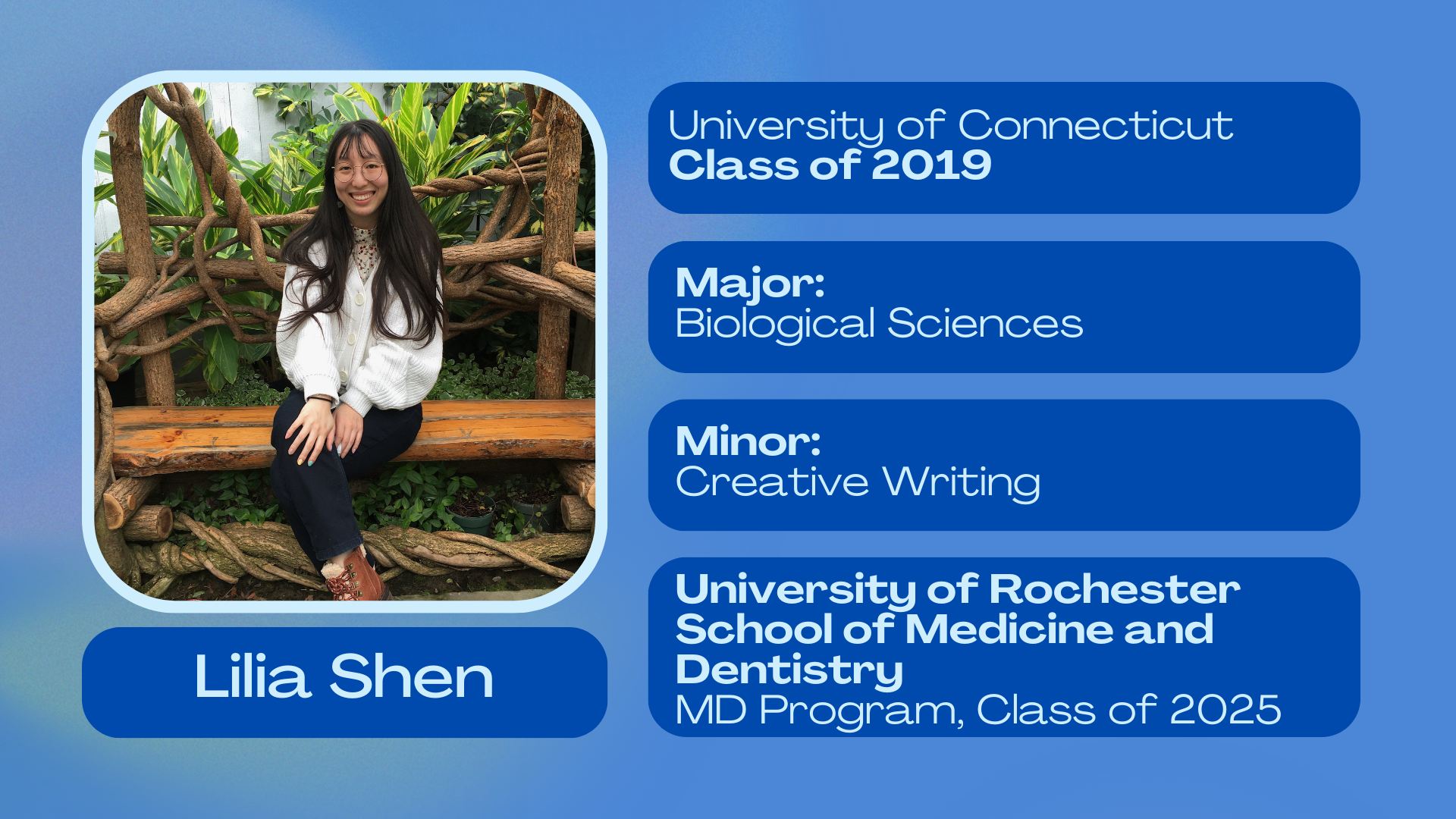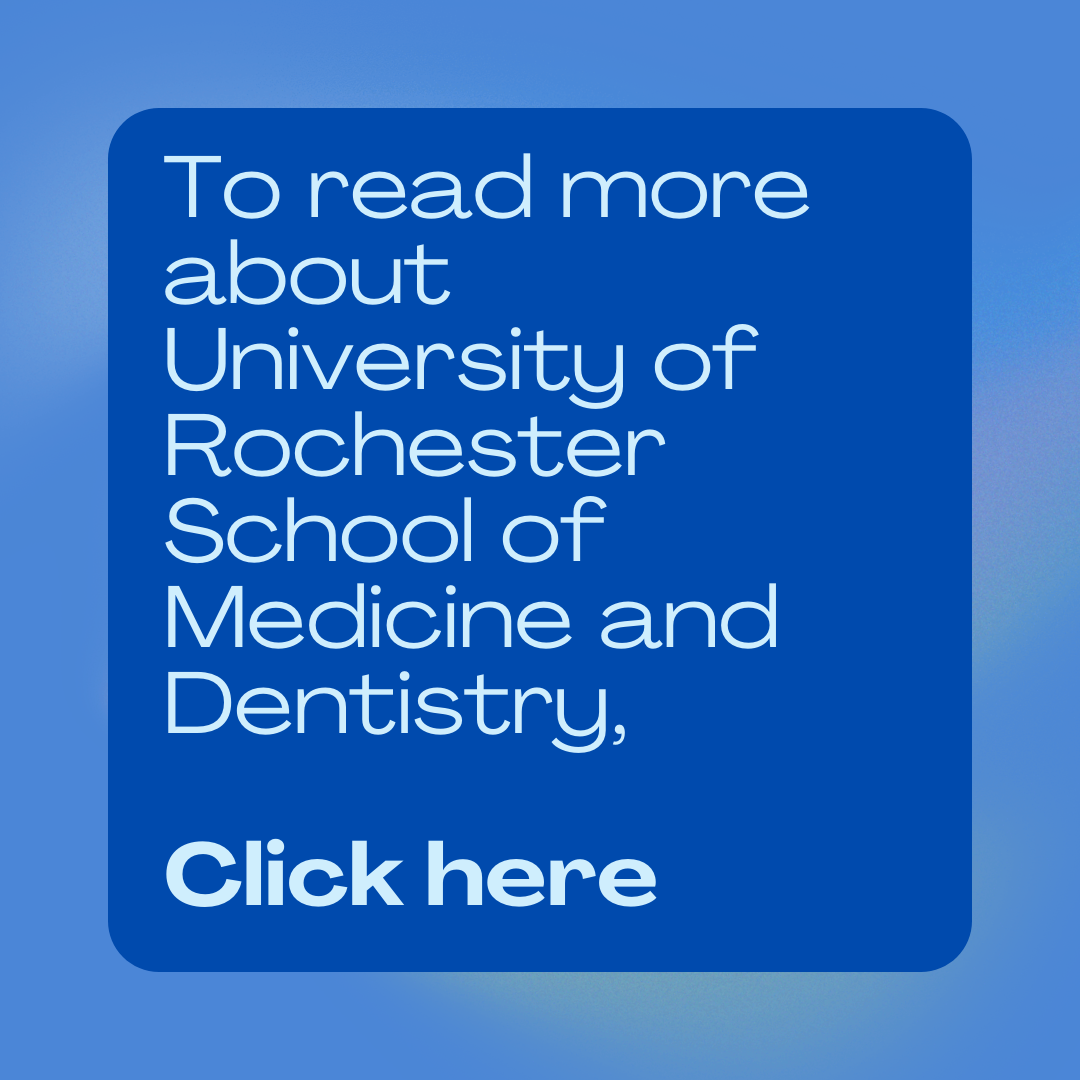What were some meaningful extracurricular activities that you were involved in while at UConn?
Getting involved in oncology research through the Health Research Program and SURF Program at the Office of Undergraduate Research was a really valuable experience for me. I was able to form long-term relationships with amazing mentors and students that I learned so much from (and still keep in touch with from time to time). Their support, encouragement, and camaraderie was an integral part of getting me through my pre-med journey. It also gave me an opportunity to mentor and teach younger students and made me realize that medical education is a field I'd love to go into when I'm a physician myself. I also loved working on the Long River Review, the literary journal at UConn, for two years. Being managing editor of the journal taught me important skills like leadership, communication, and time management that are easily transferable and essential to medicine.
What were some challenges you have faced along your healthcare journey so far, and how have you overcome them?
I was actually a re-applicant for medical school and was not able to receive any acceptances after my interviews the first time around that I applied. Finding it in me to go through the entire process again was a lesson in resilience. Reflecting on the weaknesses of my first application, turning to my family and friends for support, and making an actionable plan to improve myself as an applicant helped me succeed the second time around. Looking back, I'm really grateful for the growth that I underwent in the gap years I took before applying again. I couldn't imagine going to medical school without it and wouldn't have it any other way now. For those who may also be re-applicants, keep persevering!
What did you do during your growth year(s) and what did you learn?
I took two growth years and during this time, I worked as a scribe/medical assistant at an ophthalmology practice. I learned a lot about interacting with patients compassionately and being able to listen to their concerns in a way that made them feel heard. Making long-term connections with patients gave me valuable insight into the ways each patient's unique story and challenges can shape their personal healthcare needs. Clinically, I also learned a lot about the roles and responsibilities of a physician. This experience reaffirmed my own desire to become a physician and made me reflect on the ways I could provide for patients in the future.
What are some ways that you take care of your mental health and overall wellbeing?
I think maintaining an identity outside of being a medical student is really important. For me, that's been staying in touch with family, hanging out with friends and classmates outside of school, taking the time to explore Rochester, reading, writing, and journaling. Also, to be completely transparent, therapy! There's nothing wrong with reaching out for help.
What advice do you have for aspiring pre-health students?
Start learning how to acknowledge your limits and take care of yourself. I know we all have an overwhelming desire to care for other people, but you need to show up for yourself if you want to show up for others. If you are stretched beyond your limits, it's not only going to hurt yourself but other people who depend on you. Also, humility is such an important aspect of being a healthcare provider. Our learning from our patients is life-long and being a physician is about working together with patients, developing mutual relationships with them, and advocating for them.

